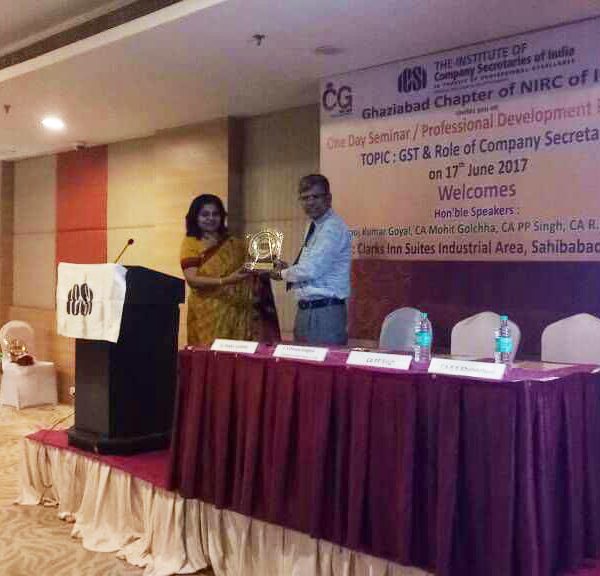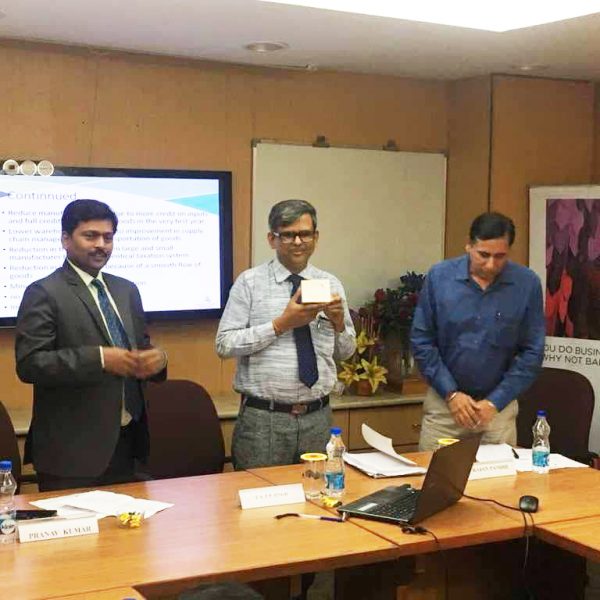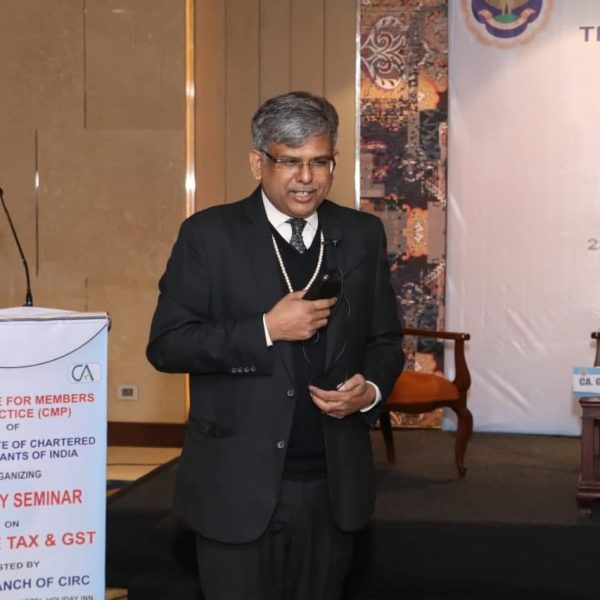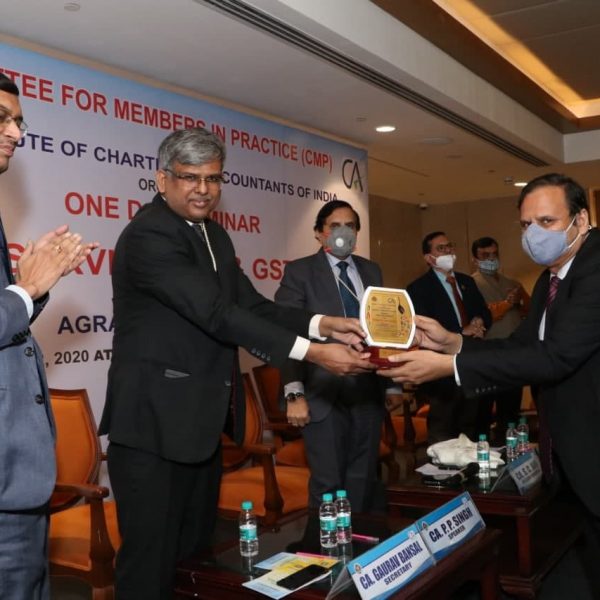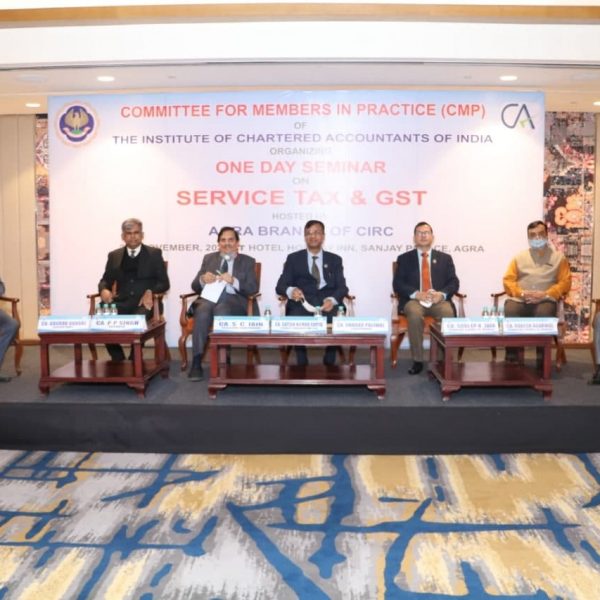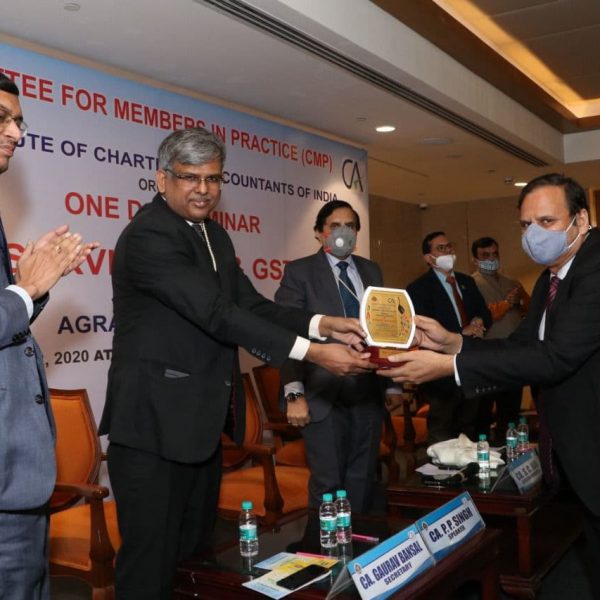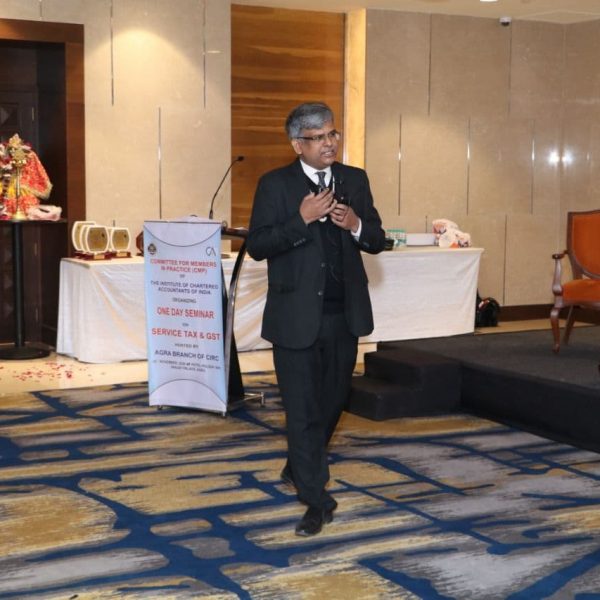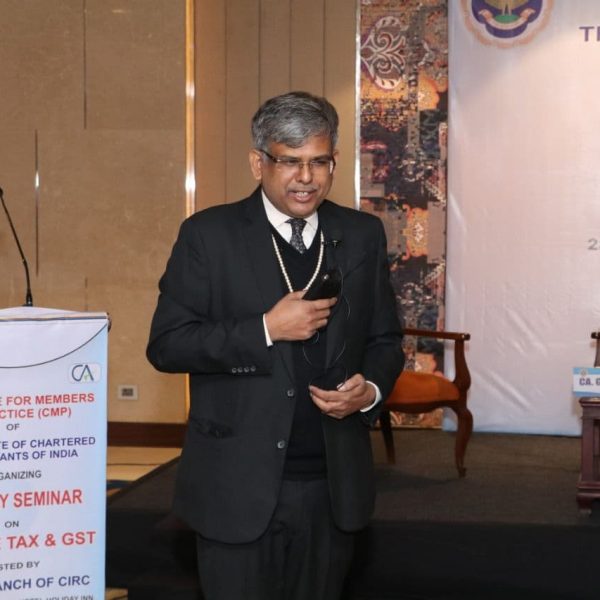Introduction: objective to write this article is manage the income tax compliance in a better way to minimize the liability of income tax, interest, penalty and fee etc. based on available tax laws itself without any tax avoidance. Planning and execution with the help of tax expert is most important to save tax to greater extent without any tax evasion and that too by using the tax law itself.
Understanding of term income under the tax laws: certain receipts are not of income in nature like capital receipts unless expressly included in the definition of income and certain receipts are apparently of income in nature but expressly excluded for example exclusion of gift from close relative under section 56(2) of the income Tax, whereas certain income are in the definition of income but exempt so no tax at all. Therefore it is important to understand the term income as defined in income tax Act because we can minimize tax by identifying the nature of receipts/accrual.
Income – Check receipts or accrual whether income as defined in section 2(24) of income tax and definition is inclusive one.
Deemed Income– in certain cases no real income still some notional taxed as income. e .g annual value of vacant house property, deemed business income if employee’s contribution of PF/ESI deducted from salary but not paid the respect fund on or before due date of respective Act , capital gain on transfer of property to other than close relative at less than circle rate for stamp duty, income from other sources if certain transaction without consideration or without adequate consideration etc.
Exempt income: certain receipts are although income but exempt from tax in some cases unconditionally and in some condition on satisfying stipulated conditions as mention in section 10,11,12,13 etc. like agriculture income, income of certain resident of leh and ladhakh.
Gift from close relative– not an income -Section 56
Determination of taxable income after excluding all non-taxable receipts/accrual.
Taxability of Income at special tax rate or normal tax rate.
Determination of actual income Vs. reporting of lump sum income and payment of tax thereon – section 44AD/AE/AF
Who is liable to pay tax? – Assessee:
“Assessee” means a person by whom any tax or any other sum of money is payable under this Act, and includes—
(a) every person in respect of whom any proceeding under this Act has been taken for the assessment of his income or assessment of fringe benefits or of the income of any other person in respect of which he is assessable, or of the loss sustained by him or by such other person, or of the amount of refund due to him or to such other person;
(b) every person who is deemed to be an assessee under any provision of this Act ;
(c) every person who is deemed to be an assessee in default under any provision of this Act ;
Classes of assessee: Broadly assessee are into 3 categories ( 1) Representative assessee such as Agent of non-resident etc. (2) Deemed assessee such as legal representative in case of death of an individual (3) assessee in default such as Non- payment of TDS/TCS, no payment within 30 days after demand notice served.
Manage the residential status: Generally resident has high tax incidence because he has to pay tax on global income except relief under treaty
- Manage the residential status if possible
- Provisions of taxation of expatriates for employee class
- In case of company location of effective control and management is vital on quantification of tax liability.
Head of income:
- Salary income from employment whether present or past
- Income from house property
- Business or profession- actual income Vs. lump sum computation of income – section 44AD, AE,AF
- Capital gain
- Income from other sources – section 56(2)
Importance of head of income:
- For NGO head wise taxation not required- follow section 11 to 13
- Selection of head of income very important because according various deductions shall be allowed e.g a doctor working for a hospital may be covered under profession where several deductions allowed where as in salary head limited deduction on lump sum or tentative basis.
- Consistent approach from year to year
- Preservation of books of account
- Actual expenditure Vs. deductions available in particular head of income for the FY.
Controversy of head of income:
- Salary Vs. professional income- CA/Doctor
- Leading case: Ram Prasad SC
- House property rental income Vs. income from business of renting/leasing/sale of flat etc.
- Leading case : Chennai properties.
- Capital gain Vs. business income – in respect of share transaction.
- Other sources income Vs. business income.
Real income Vs. deemed income:
- Example of deemed income:
- Property remains vacant
- Purchase of immovable property at less than circle rate for payment of stamp duty- section 56(2)
- Sale of immovable property at less than circle rate for payment of stamp duty- section 50C/43CA
Computation of Business/profession income:
- Computation of business income or profession based on net profit with certain allowance and disallowance.
- Computation of income on presumptive basis based on lump sum basis under section 44AD/AE/AF etc. for certain business and special provision for profession u/s 44ADA.
- Opt for presumptive taxation if eligible and income is less than the normal income.
- Must keep in mind the block period of 5 years in certain cases.
Plan the capital gain on transfer of capital assets:
- Plan the transfer of capital assets
- High tax rate in the case of short term capital gain
- Low tax rate in the case of long term capital gain.
- Nature of capital gain short term /long term depends upon the period of holding of capital assets by the owner /previous owner.
- Accordingly manage the holding of capital assets to make long term to reduce tax.
- Special tax rate in certain cases where tax rate is low as compared to normal tax rate – chapter XII- Section 110 to 115BBG.
Transaction pertaining to capital gain on transfer of immovable property:
- Don’t try to transfer immovable property at less than circle rate for stamp duty- maximum varioation-5% permissible
- If any compulsion must challenge the stamp duty paid/ circle rate- both saving in stamp duty as well as save the income tax
- Sale at less than circle rate means payment of tax on deemed income/ unrealized income ( value for stamp duty- actual transaction price) tax in the hands of seller u/s 50 C and also in the hands of buyer as income from other source.
- For builder etc. also if sale of immovable property at less than circle rate leads to offer tax on deemed income of value for stamp duty- actual transaction price
- In case of transaction between close relative treated as gift – no tax if covered in section 56(2) exceptions.
Set off of loss and carried forward and set off in next FY within certain period:
Intra head set off of loss from one source of income against income from other source of income of same head within the same AY with few exceptions and limitations.
- Inter head set off of loss from one head of income against income from other head of income within the same AY with few exceptions and limitations.
- Unadjusted loss to be carried forward for set off in following AY within limitations.
- This will reduce the total income and consequently reduction in tax liability .
Tax rate:
- Tax rate as per Finance Act for tax payment of self-assessed tax , advance tax, TDS, TCS
- Tax rate as per income tax Act- normal rate, TDS rate, TCS rate
- Tax rate as per income tax act – special rate of tax – chapter XII-DETERMINATION OF TAX IN CERTAIN SPECIAL CASES
- Tax rate is too high in certain income such as cash credit, unexplained investment, unexplained expenditure etc. mentioned in section 115BBE etc.
- New Option to pay tax at lower rate without deductions/allowances u/s 115BAC. Needs to compute tax as per normal and tax as per 155BAC and lower of these tax may be paid.
Special Tax rate on income referred to in section 68 or section 69 or section 69A or section 69B or section 69C or section 69D.
115BBE. [(1) Where the total income of an assessee,—
(a) includes any income referred to in section 68 , section 69, section 69A , section 69B , section 69C or section 69D and reflected in the return of income furnished under section 139 ; or
(b) determined by the Assessing Officer includes any income referred to in section 68 , section 69, section 69A , section 69B , section 69C or section 69D , if such income is not covered under clause (a),
the income-tax payable shall be the aggregate of—
(i) the amount of income-tax calculated on the income referred to in clause (a) and clause (b), at the rate of 60%; and
(ii) the amount of income-tax with which the assessee would have been chargeable had his total income been reduced by the amount of income referred to in clause (i).
(2) Notwithstanding anything contained in this Act, no deduction in respect of any expenditure or allowance or set off of any loss] shall be allowed to the assessee under any provision of this Act in computing his income referred to in clause (a) [and clause (b)] of sub-section (1).
Cash credits- section 68: Where any sum is found credited in the books of an assessee maintained for any previous year, and the assessee offers no explanation about the nature and source thereof or the explanation offered by him is not, in the opinion of the [Assessing] Officer, satisfactory, the sum so credited may be charged to income-tax as the income of the assessee of that previous year :
- [Provided that where the assessee is a company (not being a company in which the public are substantially interested), and the sum so credited consists of share application money, share capital, share premium or any such amount by whatever name called, any explanation offered by such assessee-company shall be deemed to be not satisfactory, unless—
- (a) the person, being a resident in whose name such credit is recorded in the books of such company also offers an explanation about the nature and source of such sum so credited; and
- (b) such explanation in the opinion of the Assessing Officer aforesaid has been found to be satisfactory:
- Provided further that nothing contained in the first proviso shall apply if the person, in whose name the sum referred to therein is recorded, is a venture capital fund or a venture capital company as referred to in clause (23FB) of section 10.]
Unexplained investments. – section 69: Where in the financial year immediately preceding the assessment year the assessee has made investments which are not recorded in the books of account, if any, maintained by him for any source of income, and the assessee offers no explanation about the nature and source of the investments or the explanation offered by him is not, in the opinion of the [Assessing] Officer, satisfactory, the value of the investments may be deemed to be the income of the assessee of such financial year. Such as Car/tractor/ truck /Jewellery/FDR/land purchased etc. in cash.
Unexplained money, etc. – section 69A: Where in any financial year the assessee is found to be the owner of any money, bullion, jewellery or other valuable article and such money, bullion, jewellery or valuable article is not recorded in the books of account, if any, maintained by him for any source of income, and the assessee offers no explanation about the nature and source of acquisition of the money, bullion, jewellery or other valuable article, or the explanation offered by him is not, in the opinion of the [Assessing] Officer, satisfactory, the money and the value of the bullion, jewellery or other valuable article may be deemed to be the income of the assessee for such financial year.
Note: Investment out of black money not recorded in the books of account.
Amount of investments, etc., not fully disclosed in books of account. – section 69B
Where in any financial year the assessee has made investments or is found to be the owner of any bullion, jewellery or other valuable article, and the [Assessing] Officer finds that the amount expended on making such investments or in acquiring such bullion, jewellery or other valuable article exceeds the amount recorded in this behalf in the books of account maintained by the assessee for any source of income, and the assessee offers no explanation about such excess amount or the explanation offered by him is not, in the opinion of the Assessing Officer, satisfactory, the excess amount may be deemed to be the income of the assessee for such financial year.
- Note: Expenditure on investment > amount at which recorded. i.e purchased using black money.
Unexplained investments section 69C: Where in the financial year immediately preceding the assessment year the assessee has made investments which are not recorded in the books of account, if any, maintained by him for any source of income, and the assessee offers no explanation about the nature and source of the investments or the explanation offered by him is not, in the opinion of the [Assessing] Officer, satisfactory, the value of the investments may be deemed to be the income of the assessee of such financial year.
Rebate and relief from tax:
- Rebate u/s 87A to individual being resident in India.
- Relief if arrear of salary received – must file 10E along with ITR
- Double taxation relief u/s 90 to 91 in respect of tax on income paid in a country and same income become taxable in another country because of resident based taxation/source based taxation so set off of tax already paid against the tax liability for avoidance of double taxation.
Payment of tax in time to save interest:
- Pay installments of advance tax in time to save interest
- Pay self assessed tax in time to save interest
- Pay demand of tax within 30 days to save interest and save penalty or from becoming assessee in default , besides other consequence of attachment of property etc
- If not agreed with demand file appeal within time, in such case 20 % tax payment for stay of demand
File return in time :
- By filing ITR in time saving of interest
- Saving of late fee u/s 234E upto ₹ 10000/-
- Early refund processing and early refund
- In time ITR allow to carried forward loss if any and adjustment in next AY to come and that will reduce taxable income in next year as result thereof saving of tax in future time.
- Ensure to file ITR before notice received for filing ITR to save penalty.
Comply the notices promptly and cooperate in the assessment or other proceedings:
- To make officer better understanding of case so minimum disallowance/ addition, chances to accept your return income so no extra tax liabilities
- Prompt and correct reply to avoid penalty for non compliances
- If aggrieved of assessment order and demand of tax made by tax officer, appeal at higher forum and
- Stay of demand petition on payment of some portion of tax demand to avoid other consequences.
Appeal within time:
- Ensure appeal well within time line with help of expert.
- If delay in appeal condonation request application explaining delay
- Request for early disposal of case
- If favourable appeal order, request to give appeal effect
- If aggrieved appeal at higher forum as per law
- If no solution under income tax law- go for suitable writ before high court under A-226 .
Conclusion: By complying above advice you can certainly manage your tax obligation in a better way and you can minimize your liability under income tax.
| If you are still facing any problem you can contact us : CA PP SINGH Contact details 9711521060, 9871229590 cappsingh@gmail.com www.ppsingh.org
|

